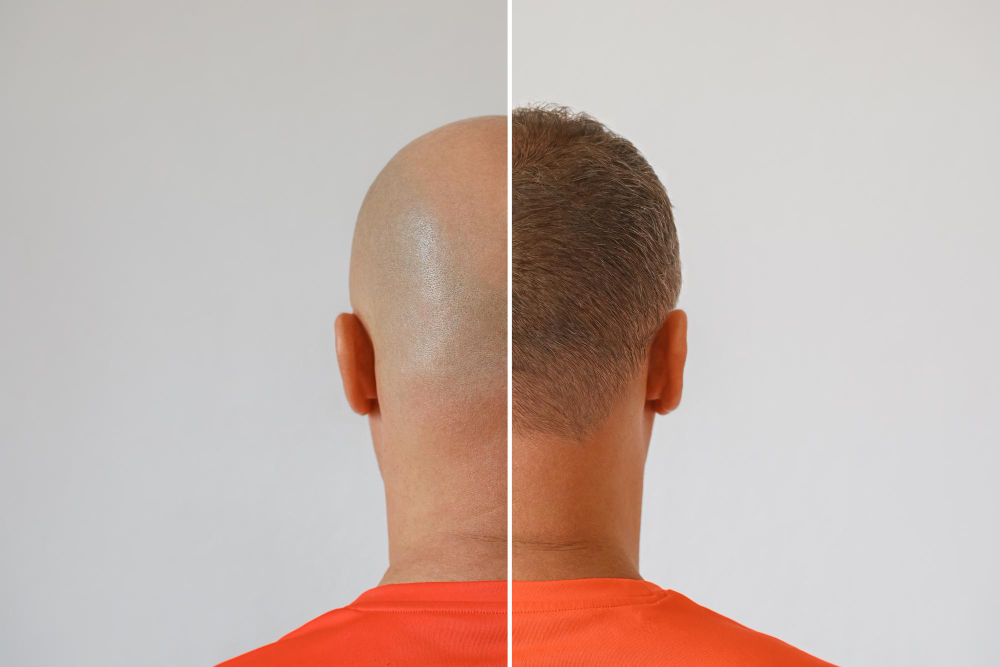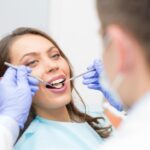Hair Transplantation
Hair transplantation is a state-of-the-art procedure that involves extracting hair follicles from one part of the scalp, often referred to as the donor area, and implanting them into areas with thinning or no hair, known as the recipient area. Hair is more than just strands on our heads; it’s an integral part of our identity and self-expression. However, many individuals grapple with the challenges of hair loss, seeking secrets to promote regrowth and restore their locks to their former glory. In this article, we will unravel the essentials of hair regrowth, from understanding the hair growth cycle to exploring advanced treatments and adopting lifestyle changes for optimal results.
Understanding Hair Growth
To unlock the secrets of hair regrowth, one must first understand the natural hair growth cycle. Hair undergoes phases of growth, transition, and resting, influenced by factors like genetics, hormones, and overall health. Recognizing the intricacies of this cycle provides the foundation for effective regrowth strategies.

Natural Approaches to Promote Hair Regrowth
Nutrition plays a pivotal role in maintaining healthy hair. Diets rich in vitamins, minerals, and proteins contribute to stronger, more resilient hair. Additionally, adopting proper hair care routines, such as regular washing and avoiding excessive heat or chemical treatments, creates an environment conducive to regrowth.
Advanced Hair Treatments
While natural approaches are beneficial, modern hair treatments offer advanced solutions for those seeking faster and more noticeable results. From laser therapies to platelet-rich plasma (PRP) treatments, these interventions aim to stimulate hair follicles and encourage regrowth.
Lifestyle Changes for Optimal Hair Health
Stress, an often underestimated factor, can contribute to hair loss. Managing stress through practices like meditation, exercise, and sufficient sleep positively impacts overall health and, subsequently, hair regrowth. Cultivating a lifestyle that supports well-being is an essential aspect of maintaining a full and healthy head of hair.

Conclusion
In conclusion, the quest for hair regrowth involves a multifaceted approach that encompasses understanding the natural hair growth cycle, adopting healthy lifestyle habits, and considering advanced treatments when needed. The journey to regaining luscious locks requires diligence, but with the right knowledge and practices, achieving optimal hair health is within reach.
FAQ
- What causes hair loss, and can it be reversed naturally?
- Hair loss can result from various factors, including genetics, hormonal changes, and lifestyle. While some natural remedies may slow down hair loss, complete reversal depends on the underlying cause.
- Are there specific diets that promote hair regrowth?
- Yes, diets rich in essential nutrients like vitamins, minerals, and proteins contribute to healthier hair. Including foods such as nuts, fish, and leafy greens can support the regrowth process.
- How effective are advanced hair treatments like laser therapies?
- Advanced treatments, including laser therapies and platelet-rich plasma (PRP) treatments, have shown effectiveness in stimulating hair follicles. Results may vary, and consultation with a healthcare professional is advised.
- Can stress really impact hair health, and how can it be managed?
- Stress can contribute to hair loss by disrupting the natural growth cycle. Managing stress through practices like meditation, exercise, and adequate sleep can positively influence both mental well-being and hair health.
- Is there an age limit for considering hair regrowth treatments?
- While there’s no strict age limit, the effectiveness of treatments may vary with age. Consulting with a healthcare professional helps determine the suitability of regrowth interventions based on individual factors.
- Are over-the-counter hair regrowth products effective?
- Some over-the-counter products may help slow down hair loss, but their efficacy in promoting significant regrowth varies. Consultation with a healthcare provider is recommended for personalized advice.
- Can hormonal changes, such as during pregnancy, affect hair regrowth?
- Hormonal changes, including those during pregnancy, can influence hair growth. Postpartum hair loss is common, but regrowth usually occurs naturally within a few months.
- Are there any side effects associated with advanced hair regrowth treatments?
- While side effects are generally minimal, individuals may experience temporary redness or irritation. It’s crucial to undergo these treatments under the supervision of qualified professionals to minimize risks.
- How long does it typically take to see results with hair regrowth treatments?
- The timeline for visible results varies among individuals and depends on factors such as the chosen treatment method, consistency, and the underlying cause of hair loss.
- Is hair regrowth permanent with advanced treatments, or will follow-up sessions be necessary?
- The permanence of regrowth depends on the specific treatment. Some interventions may require periodic maintenance sessions to sustain results, and a healthcare professional can provide guidance on long-term care.












